Children in Crisis: Spotlight on Underfunded Humanitarian Emergencies

Background
2023 and 2024 were marked by high-profile humanitarian crises, the wars in Ukraine and Gaza, and devastating earthquakes in Türkiye and Syria to mention a few. In addition, 2024 was one of the worst years on record in UNICEF’s history for children living in conflict zones. More than one in six children globally now live in areas affected by conflict, forced to face unthinkable violations. In a world engulfed with polycrisis, the likelihood that emergencies get neglected is inevitable. In such situations of “forgotten”, “neglected” or “underfunded” crisis, it is imperative that the plights of children are not overlooked.
In 2023, the Delegation of the European Union to the United Nations in New York partnered with UNICEF in organizing the discussion series entitled “Children in Crisis: Spotlight on Underfunded Humanitarian Emergencies.” The 2023 series focused on crises in the Democratic Republic of Congo (DRC), the situation of the Rohingya, Haiti, State of Palestine, and South Sudan. The series continued in 2024, spotlighting the situations in the DRC and Sudan, Haiti, and the Central Sahel.
Aim of discussion series for 2025
- Focus on the plight of children in underfunded crisis, who receive little/no or inadequate assistance. With particular attention drawn to the need for their access to education and protection, creating linkages to the six grave violations against children; the EU commitments on Education in Emergencies; and the EU updated Guidelines on Children and Armed Conflict.
- Demonstrate the operational reality, severity and scale of needs in severely underfunded crises, with in depth focus on specific sectors that are most relevant for the wellbeing and protection of children.
- Advocate for specific focus on children’s rights in programming for/and humanitarian support; and
- Advocate for more financing for children’s programming during humanitarian responses
Methodology
Timing: approximately one discussion per trimester, covering endline trimesters of March; June, September, December. Windows of opportunity will be created by building linkages with global moments and international conferences.
Targeted audience: The series will be open to select UN Member States (Permanent Representative or Deputy Permanent Representative), humanitarian donors, UN agencies, the Red Cross and Crescent Movement, humanitarian NGO’s, civil society, regional organizations, and academia with a keen interest in the topics discussed.
Cross-thematic layer: Country-focused sessions will incorporate thematic lenses such as climate, fragility and vulnerabilities, including girls, children with disabilities, and Children and Armed Conflict (CAAC), partnerships (private sector/IFIs), and gender equality. Additionally, once or twice a year, a session may be dedicated entirely to one of these themes, independent of specific country crises.
Participation: The discussion series will be hosted by the European Union, co-organised with UNICEF in coordination with OCHA, and when possible co-hosted by another EU Member State. Each session will consist of a panel that will update participants on the current needs, gaps and challenges, followed by a Q&A and discussion on what is needed from the international community to improve the situation.
Panel: For each meeting, a UNICEF Emergency / Country Representative will brief, together with OCHA. The EU and UNICEF also aim to invite two UN and/or NGO Representatives to join the panel, ideally from the field. Site participation of the country representatives will be strongly encouraged. Hybrid participation of the panelists will be possible, when country representation in person is not possible.
Amplification: Increasing the reach of the messages, recommendations and action points agreed at the discussions is paramount in putting the plight of children on the NY agenda. Visibility will be provided on social media platforms of EUDEL, UNICEF and other UN agencies. This will help increase awareness and knowledge and influence discussions to respond to these underfunded crises in the media and public.
Key Messages from the Discussion Series in 2025
KEY MESSAGES: Meeting on Afghanistan

EU/UNICEF
KEY MESSAGES: Meeting on Haiti
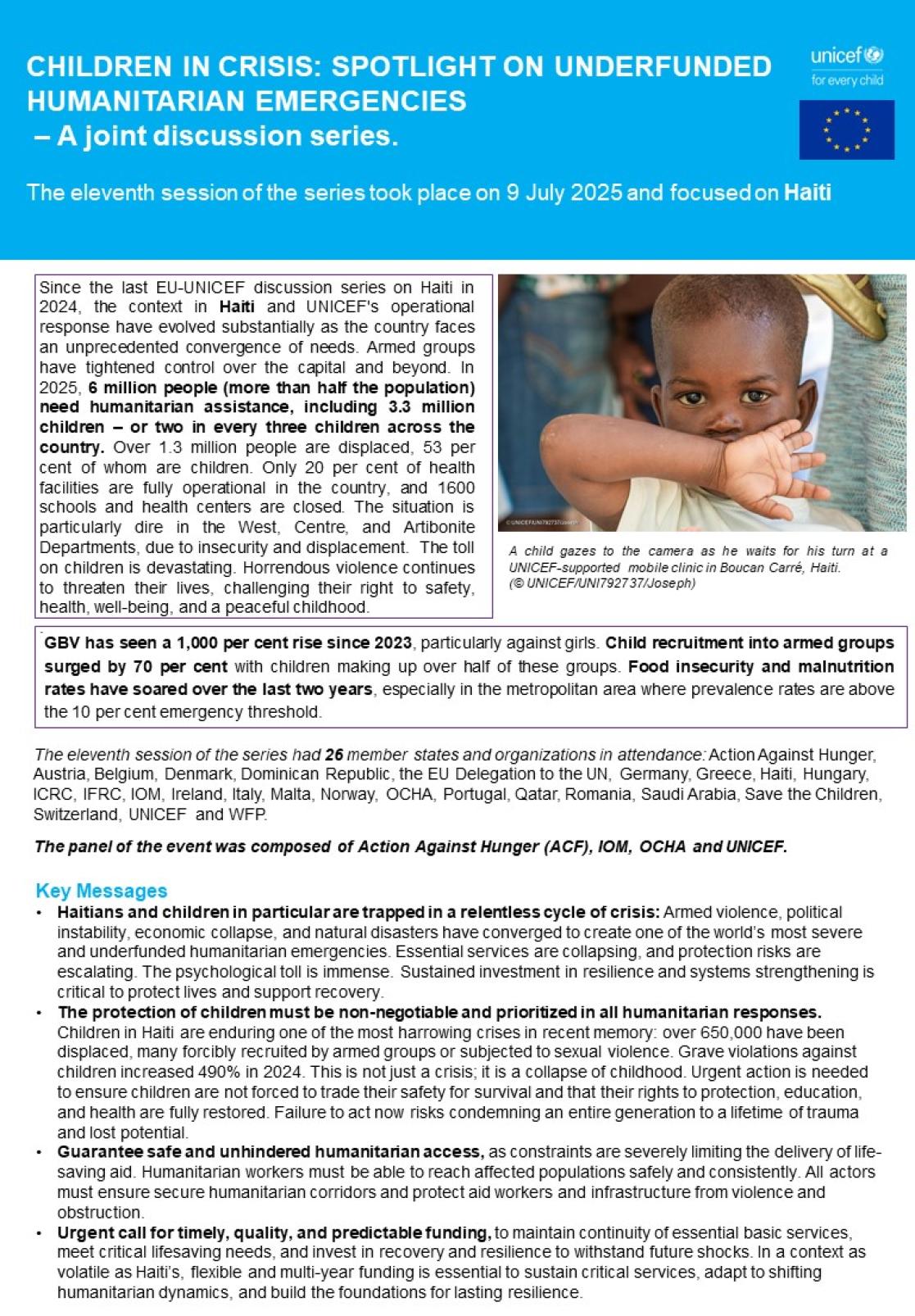
EU/UNICEF
KEY MESSAGES: Meeting on Myanmar
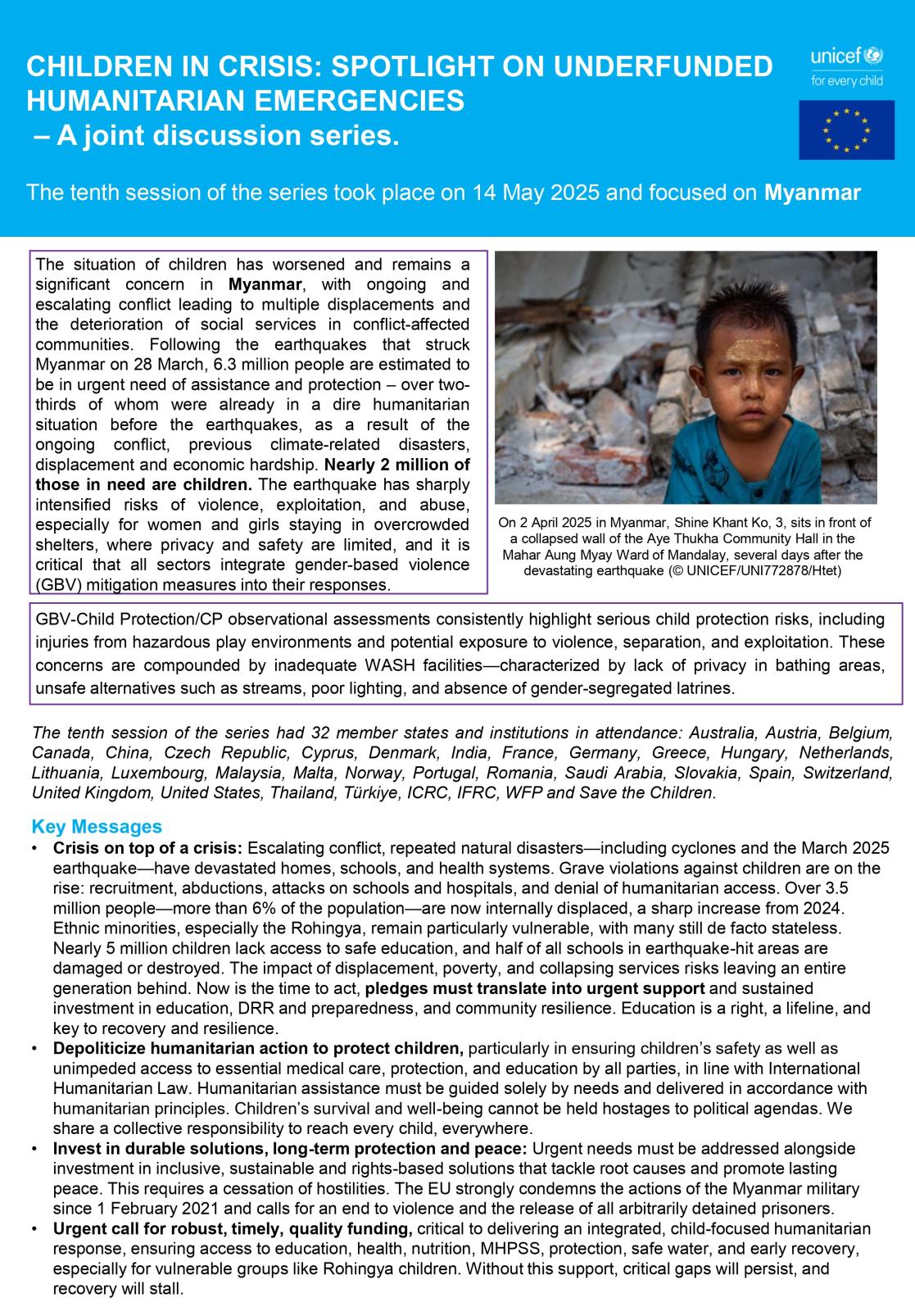
EU/UNICEF
KEY MESSAGES: Meeting on Central African Republic
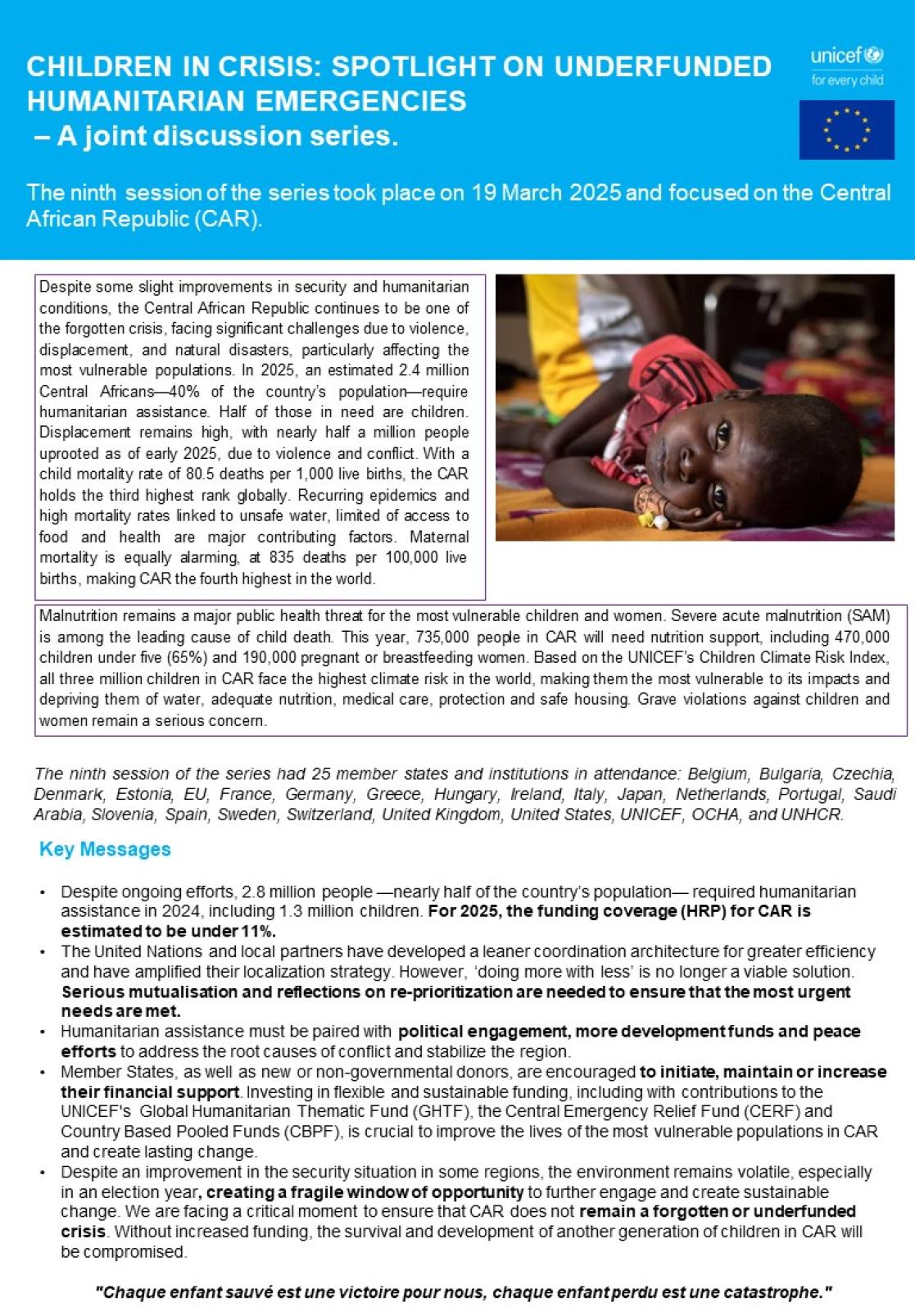
EU-UNICEF
Key Messages from the Discussion Series in 2023 and 2024
KEY MESSAGES: Meeting on the Central Sahel
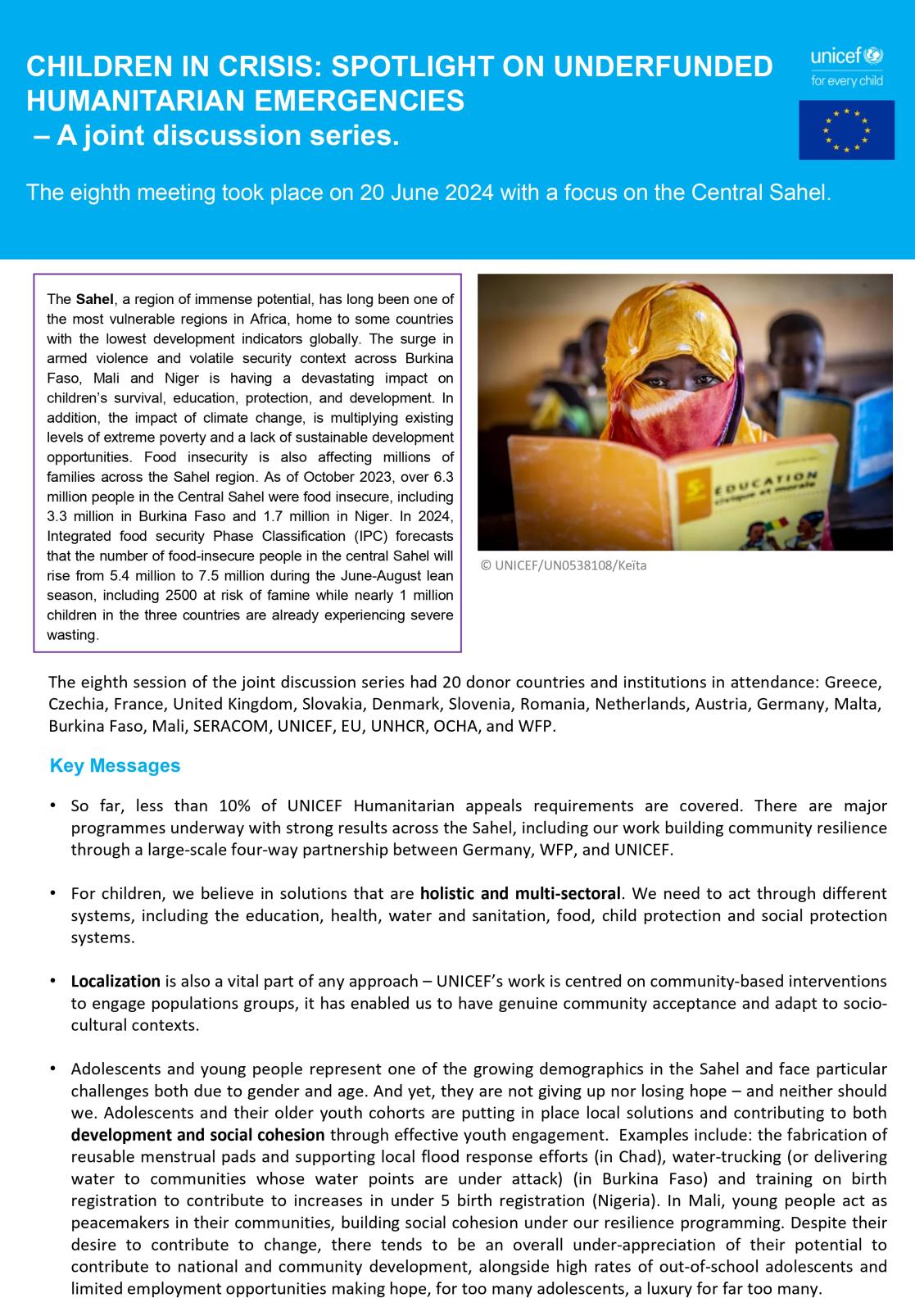
UNICEF
KEY MESSAGES: Meeting on Haiti
See also: UNICEF Humanitarian Action for Children 2023 - Haiti
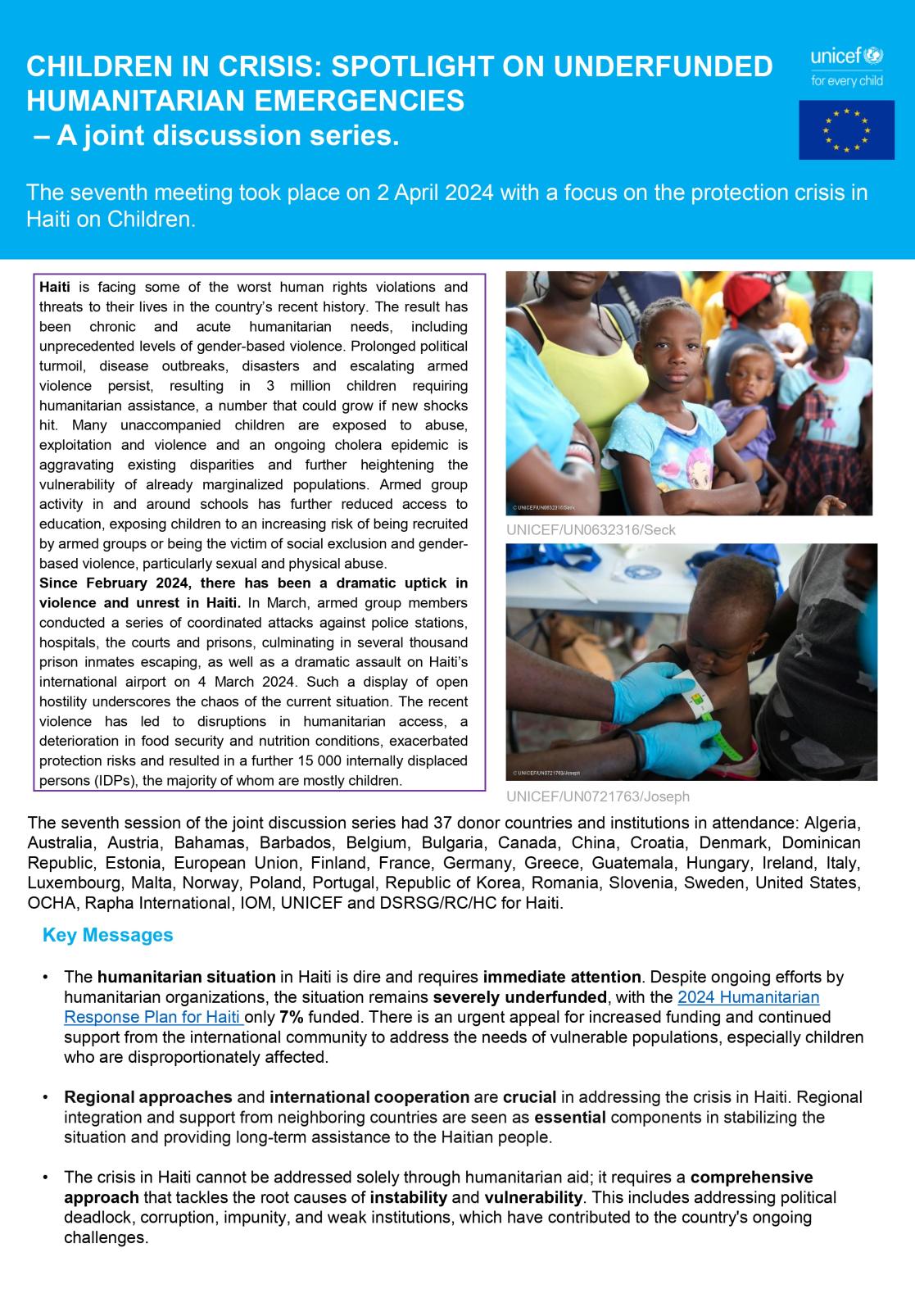
EU-UNICEF
KEY MESSAGES: Meeting on DRC and Sudan

EU-UNICEF
KEY MESSAGES: Meeting on South Sudan
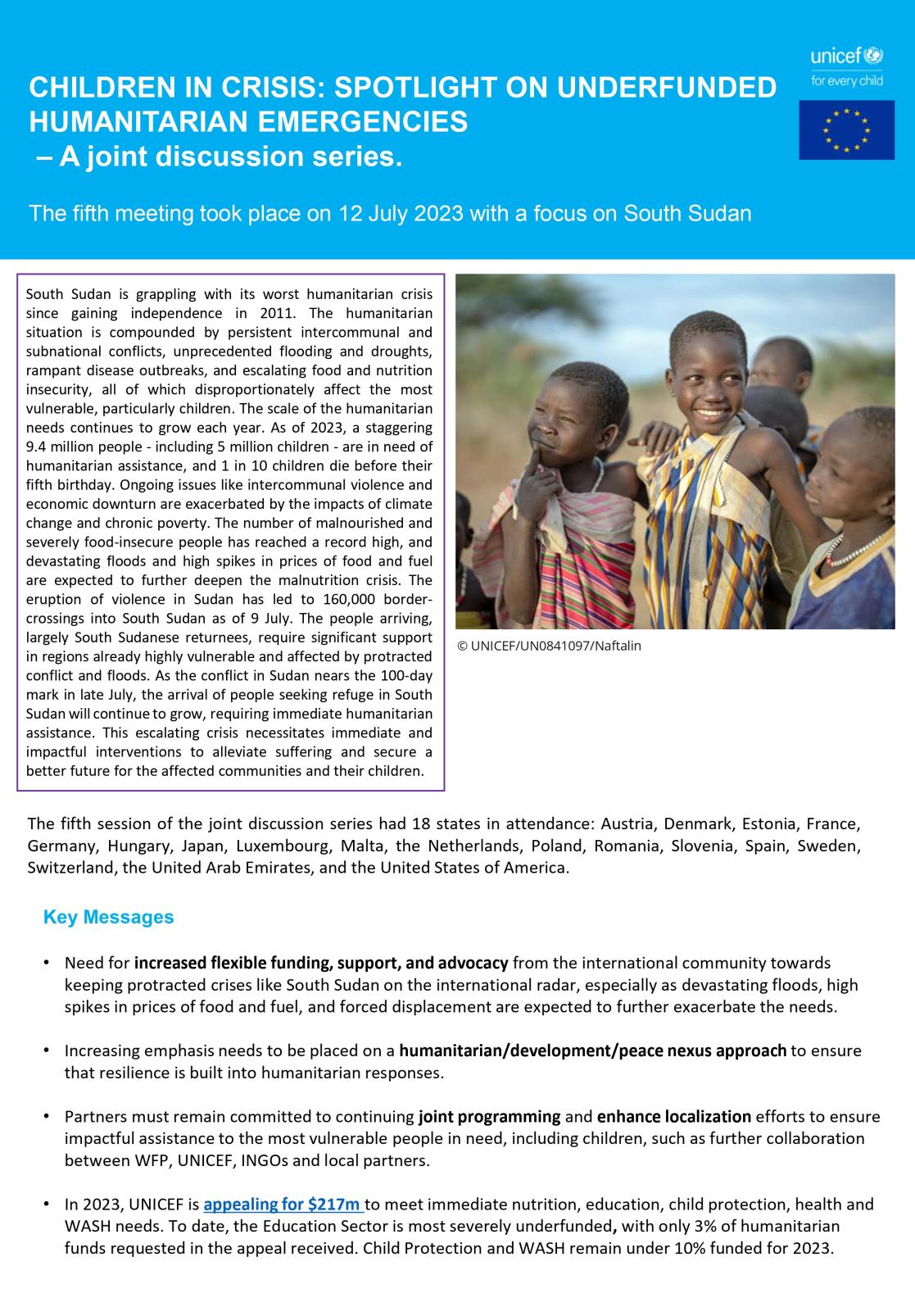
EU/UNICEF
KEY MESSAGES: Meeting on Palestine

KEY MESSAGES: Meeting on Haiti
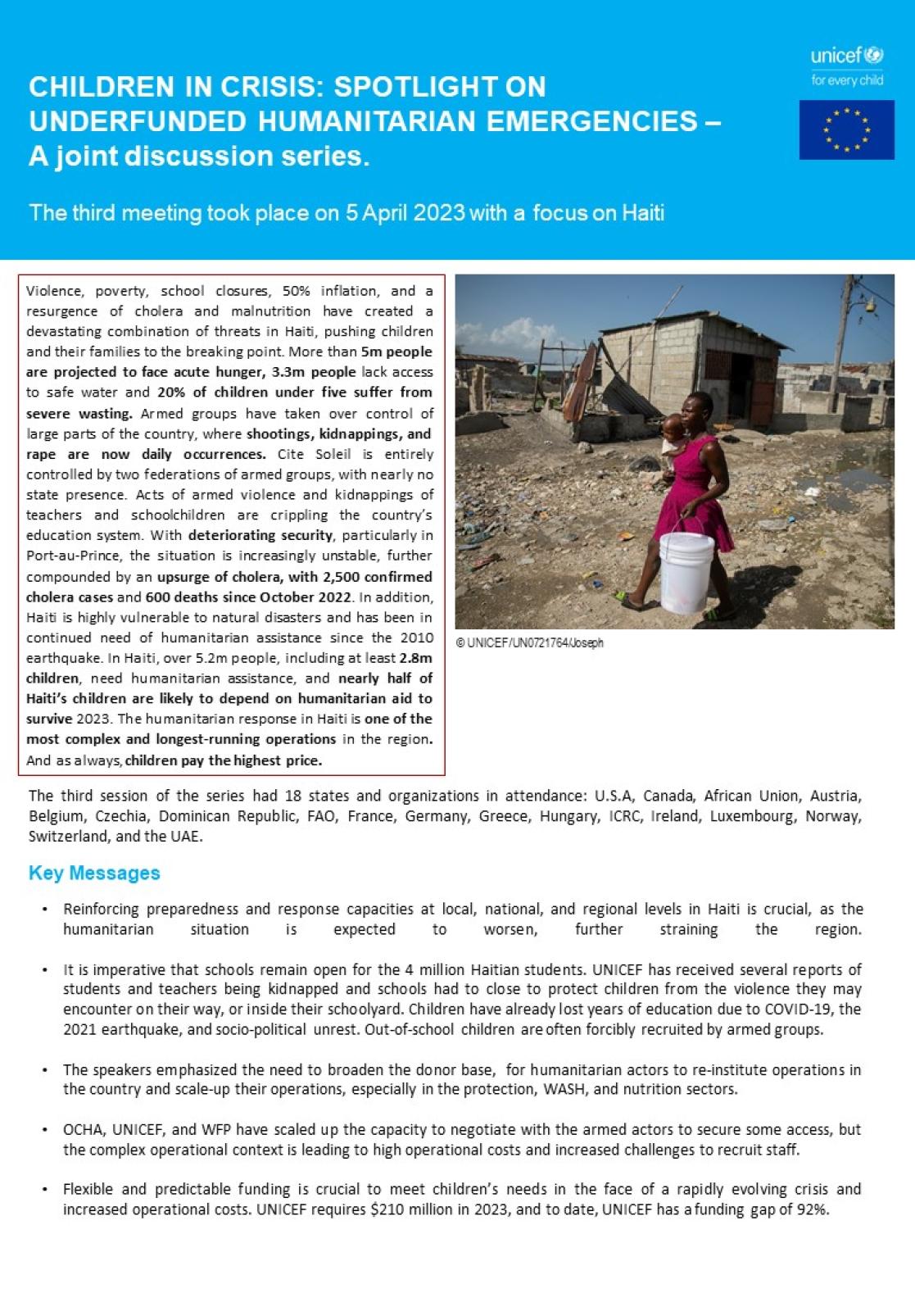
EU-UNICEF
KEY MESSAGES: Meeting on the Rohingya Crisis
See also: Rohingya Humanitarian Crisis Joint Response Plan 2023 and UNICEF Humanitarian Action for Children 2023 - Bangladesh
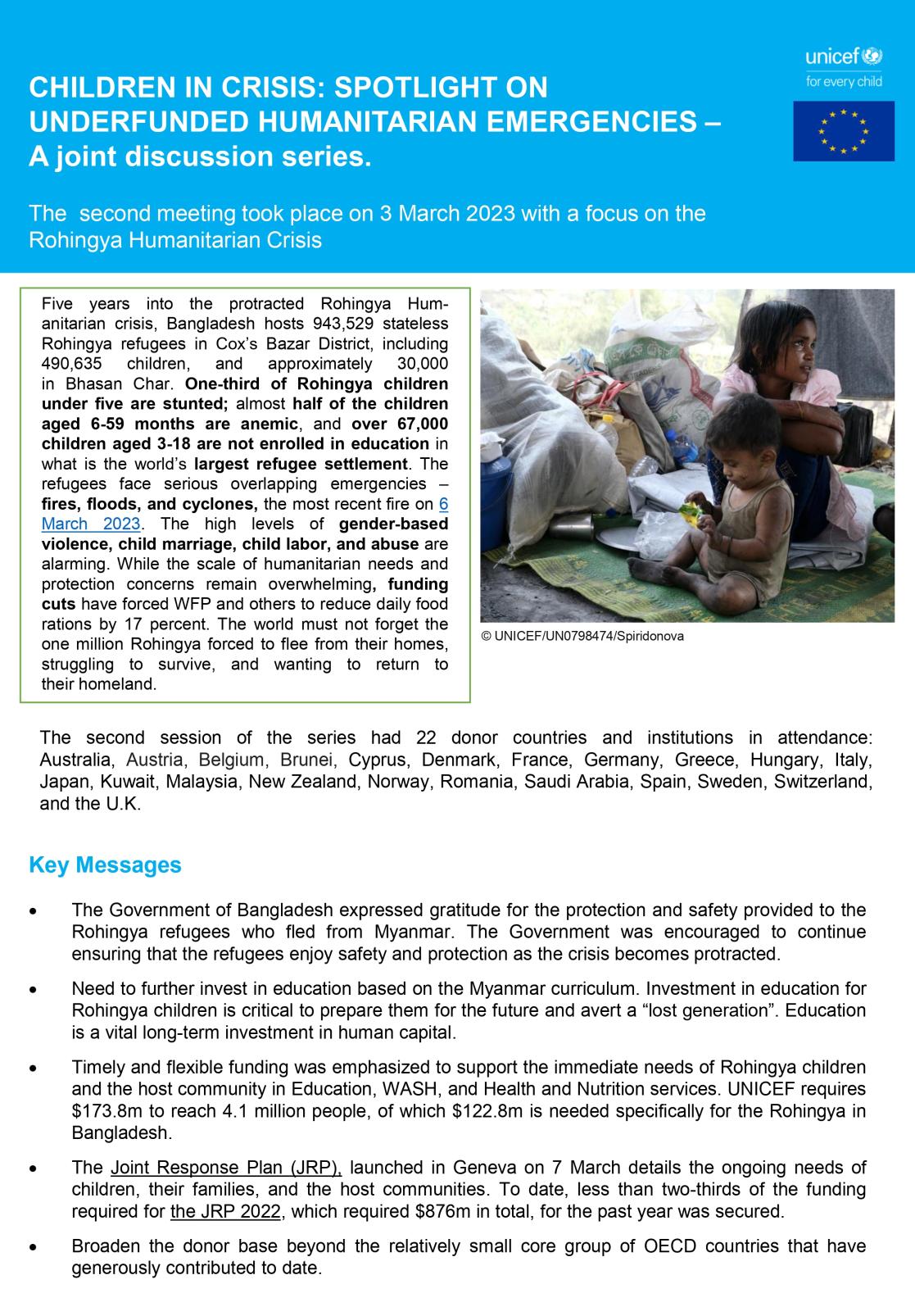
KEY MESSAGES: Meeting on the DRC
See also: OCHA 2023 Humanitarian Response Plan (HRP) for the DRC and UNICEF Humanitarian Action for Children 2023 - DRC
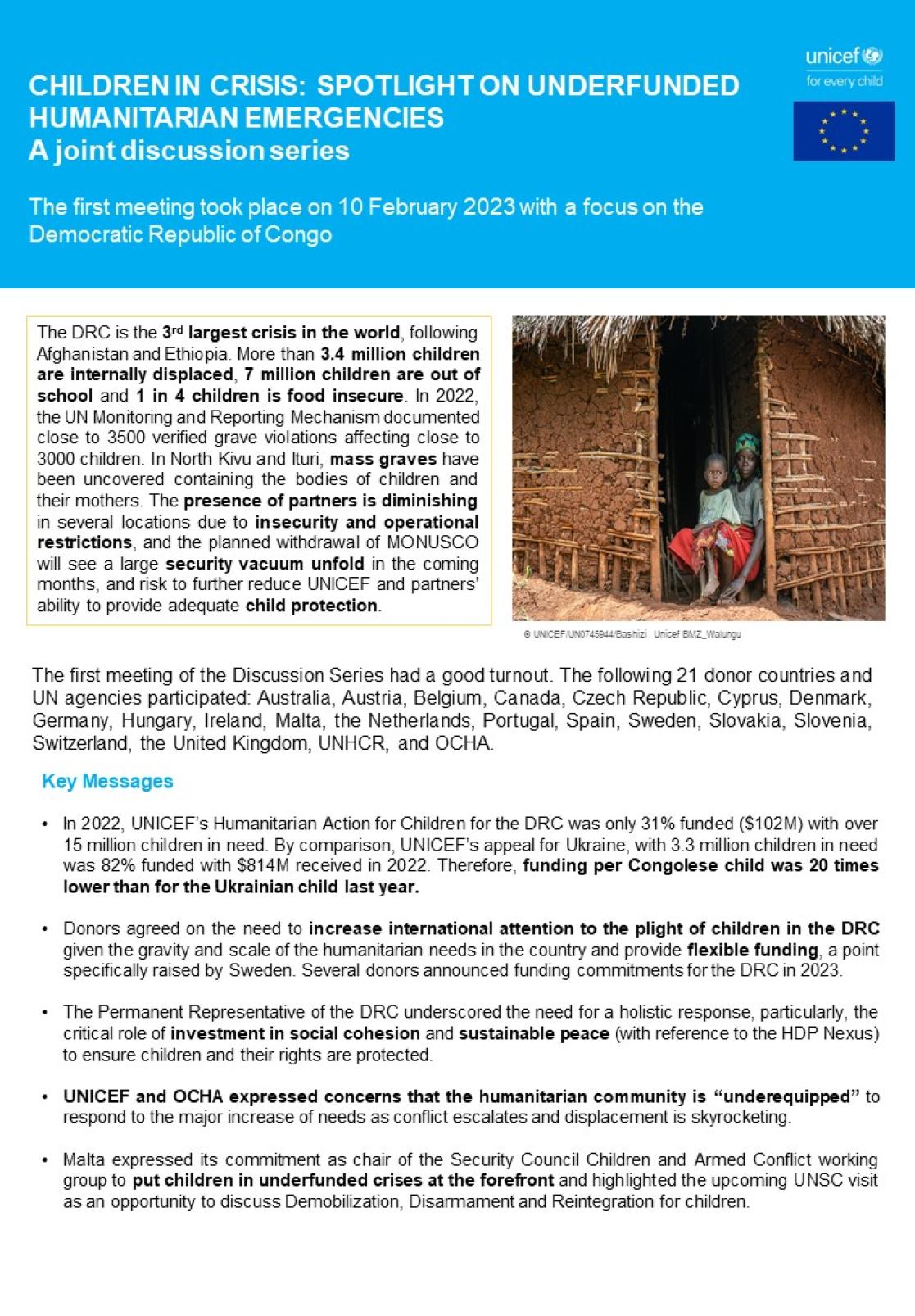
[1] UNICEF Humanitarian Action for Children 2023
PRACTICAL INFORMATION
Participation is by invitation.
